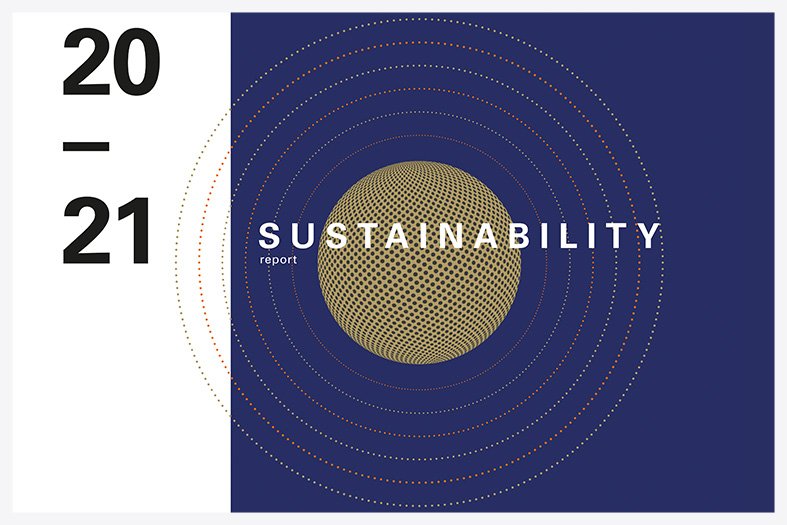
Successful companies with high reputations are expected to be financially stable but socially responsible as well. That means using natural resources whenever possible and meeting high ethical standards. In short, companies should act in a sustainable manner, doing all that they can to support our climate.
It is important that all effort be made to live within the earth's natural restrictions and accept the boundaries and limitations of its ecosystem. But, how can we balance these needs? After all, everyone is environmentally responsible for any actions that threaten the planet we inhabit. For today’s pharma and biotech companies and their partner networks, adopting this mindset can mean a competitive advantage in both the industry and the community.
While drug companies manufacture medications that are necessary for improving the quality of life for patients around the world, many of which are lifesaving, their production is, nevertheless, resource intensive. As an industry, pharmaceutical manufacturing requires a great deal of energy-intensive production operations including automated air circulation and a high water and electricity usage to name but a few.
Also, the required high standards that result from strict, ever-increasing, and absolute binding regulations by healthcare authorities make it not that easy to entirely avoid residual emissions.
Another requirement facing the drug manufacturing industry is the “Green Deal.” Initiated by the European Union, it sets a climate goal to be the “world’s first climate-neutral continent” by 2050, thus cutting greenhouse gas emissions by more than half by 2030. For the biopharma industry, a delicate balance must be achieved. On the one hand, its players must, of course, continue to strictly achieve the high regulatory requirements and, on the other hand, strive to enable environmentally friendly usage of resources to contribute meeting the Green Deal climate goal. How can these goals best be met?
Pathways to achieve sustainability
Numerous pharma and biotech companies and their associated contract development and manufacturing organizations (CDMOs) are already taking innovative steps toward change, from introducing renewable energy, to new wastewater strategies, to sustainable packaging options. By doing so, a valuable contribution is being made toward reducing emissions.
In our company, responsibility towards both patients and society are inseparably linked. For example, we have realized a ‘holistic approach’ and have been investing over the years in various energy efficient and environmentally friendly technologies.
All combined, since 2014, these technologies have resulted in overall savings of more than 4,500 tons of carbon dioxide, the greenhouse gas that is one of the main drivers of global warming. Also, we have realized more than 100 efficiency projects over the past ten years. Having invested more than €6.5 million in such projects, we were able to realize savings for more than 30 million kWh in the areas of electricity, natural gas and biogas.
We also encourage our workforce to collect green kilometers by participating in initiatives such as “Green Ways to Work.” In addition, companies can employ a strict adherence on the purchase of carbon credits which further supports expansion measures for renewable energy products.
Thus far, the largest sustainability project our company has implemented is our Visual Inspection and Logistics facility. The site realizes a sustainable energy concept and includes the operation of a modern, environmentally friendly block heating and power plant, the use of geothermal energy and the comprehensive use of excess energy, as well as photovoltaic systems, all of which are combined in an energy-efficient manner.
Since 2020, our German sites are climate-neutral and no longer have a CO2 footprint. Our production sites and sales offices in Austria, the U.S. and Asia have followed this CO2 neutrality in 2021. This important milestone was made possible by the interaction of many components within the scope of a long-term CO2 strategy in our company.
There are many other ways that innovative companies can help improve sustainability. By implementing dedicated sustainability initiatives, important structures and processes can be created that range from the nomination of environmental management officers to modern working conditions, efficient production processes and advanced waste recycling.
By continuously monitoring energy consumption, companies can identify various potentials for improvement. In the popular field of digitalization, many outcomes arising from this process also contribute to its sustainability and range from digitalizing former paper-based processes to replacing rides or flights to on-site meetings by applying digital formats.
Achieving sustainability need not always be high-tech. For example, companies can also rely on a comprehensive, modular concept for alternative mobility to make switching to sustainable means of transportation as appealing as possible to its staff members. Our company has, for example, invested in highly innovative bicycle parking facilities and cooperates with a local energy supplier on renting electronic bicycles.
Thus, our staff members can quickly commute between corporate sites in a resource-friendly way. Employees can also charge their electric vehicles at work with electricity from hydropower. In addition, a national bicycle leasing initiative offers employees attractive leasing conditions when acquiring a new bicycle.
How sustainability pays off
For most companies, achieving the goal of sustainability is paramount. To do so requires the harmonization of three pillars—sociological, ecological and economic. While some investment will be necessary to achieve this, over the long-term the company will not only grow in a stable manner but profit as well.
In the healthcare industry, pharma and biotech companies are more often looking for responsible partners that think and act in a similar manner on core issues. This behavior is frequently included in the overall decision matrix of sponsor companies when deciding with whom to partner. As such, sustainability helps a company be more attractive to existing and prospective customers, partners and employees.
To be sustainable in a successful way companies must adopt a culture of responsibility, acting in a sustainable manner and making it a significant part of their corporate culture. Acting early and innovative in these fields can increase the value of a company regardless of the sector in which it operates. The obligation is not just for today but, perhaps more importantly, for future generations to come.
It is important to remember that responsibility to individuals and society alike are inseparably linked. After all, the world belongs to each and every individual and, as such, everyone has a role to play in its care and well-being.
This article was originally published on contractpharma.com

Vetter’s first Sustainability Report is here
The 2021 Vetter Sustainability Report: Focus on transparency as well as economic, ecological, and social responsibility.

